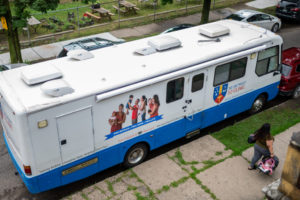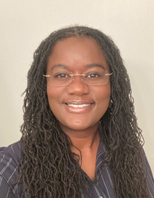Mark Rivett posted November 24, 2020
Read Full Story on MiRage
A new University of Michigan-led project, in partnership with four Detroit community-based organizations, will try to lighten that load a bit. Team members will work with residents of 200 low- and moderate-income (LMI) households in three Detroit neighborhoods-Jefferson Chalmers, Southwest Detroit and The Villages at Parkside-to improve home energy efficiency and to lower monthly utility bills.
At the same time, the U-M researchers will explore the possibility of reforming the utility rate structure to provide the basic electricity needs of LMI households for free while ensuring that the utility provider’s costs are covered.

School for Environment and Sustainability Assistant Professor Tony Reames
“Our premise is that energy is a basic human right. With a better understanding of energy consumption, we can determine if there is a free block of ‘essential’ energy that everyone should get-and if not everyone, then those least likely to be able to afford it,” said project leader Tony Reames, an assistant professor of energy justice at the U-M School for Environment and Sustainability.
Category: All News and Events, Community News and Events, DetroitComments Off on University of Michigan, community partners tackle energy insecurity in three Detroit neighborhoods
Mark Rivett posted October 6, 2020
Read Full Story on Michigan Impact

The mobile clinic was a “lifeline” for patients during the pandemic
For mom Heavenlee Gordon, The Luke Clinic couldn’t have come into her life at a better time. At a church in southwest Detroit, Gordon found the help she needed and an added bonus: The doctors and nurses treated her like part of their own families.
“They care about you. They love you. They love your kids. And they make sure you’re OK, and even in the middle of the night, they answer their phones for you and just make sure you’re doing the right things with parenting and things like that,” said Gordon, a patient who had two children with the help of The Luke Clinic. “The other doctors didn’t do that for me.”
The Luke Clinic provides free prenatal, postpartum and infant care (through one year of life) to any family in the Detroit metro area. So far, it has seen more than 300 patients. Even though most of the clinic’s patients have extremely high levels of medical, social and behavioral risk factors, they have shown lower rates of preterm delivery than the city of Detroit, which takes into account patients with health insurance.
Read Full Story on Michigan Impact
Category: Community News and Events, DetroitComments Off on Prenatal safety net: Mobile clinic gives free services to Detroit moms
Mark Rivett posted May 6, 2020
Read Full article on The Record<
Social distancing guidelines during the COVID-19 pandemic call for maintaining a distance of 6 feet between yourself and other people.
A campaign launched in partnership with the Detroit Police Athletic League and U:Link — a collective of governing agencies at seven Michigan public universities including the University of Michigan — wants to ensure that the physical distance does not translate to social isolation.
The campaign, called 6˚ of Separation, encourages people to commit to checking in on six people on the 6th, 16th and 26th of each month through the end of June.

“Our community needs timely, factual information we can trust as well as safe and caring human contact during this unprecedented test of our willingness to love our neighbors as ourselves,” said LaSonia Forte, associate director of state outreach in the Office of the Vice President for Government Relations.
Forte said the campaign launched in April after a March conference call between the Detroit PAL and U:Link members, along with Ashleigh Johnson of Poverty Solutions, Jade Burns, assistant professor of health behavior & biological sciences in the School of Nursing, and Diana Seales, a Ph.D. candidate who works at the Ginsberg Center and teaches in the Semester in Detroit program.
To date, more than 1,000 people have visited the Detroit PAL website to pledge to connect with six people three times a month.
Category: All News and Events, Detroit, Outreach News and EventsComments Off on Campaign encourages checking on others during pandemic




